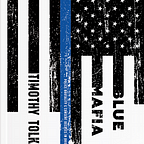I was born in a segregated community where no Black people were allowed to settle. Fifty years ago, there were 10,000 Sundown towns. Today, people would prefer to forget our ugly history.
When I was a teenager, I didn’t understand why there were no Black people in our town. I had heard that there used to be a sign posted at Salem’s city limit (like the one above but probably using a slur) letting Black people know that they weren’t allowed after sundown, but I didn’t know the dark history of Sundown Towns. It wasn’t something our parents taught us about, although they should have. We all lived blissfully unaware of our town’s criminal past.
Our basketball team would strut out on the court and the disparity was obvious. The teams we played were integrated. Our team was not. Random strangers we encountered from other towns would invariably say “Salem sucks!” And we agreed; it did suck. It was boring. There was nothing for the young people to do. We couldn’t go to bars, not that bars were any kind of panacea in our town.
Thanks for reading Jetset Hitchhiker! Subscribe for free to receive new posts and support my work.
Subscribed
We had school dances and we had parties out in the country. Mostly, we broke things and discarded trash everywhere, including in the houses of anybody foolish enough to invite people over to their house. If you invited us into your home, we would put holes in the walls and leave half-full beer cans everywhere. Our town was uncultured in the extreme.
At our school dances, nobody knew how to dance. It was embarrassing. In sports, we always got our asses kicked by the integrated teams. Our town sucked, but at least “it’s a good place to raise children,” according to our parents. Why they said that never occurred to me until much later.
The only times I saw a Black person in Salem’s city limits, there was a cop tearing their car apart for no good reason. The cops were nice to us. We thought they were mean, but we didn’t know what they did to Black people.
Getting arrested often didn’t lead to charges if they thought you were a “good kid.” It was mainly a class question if you had the sense not to get mouthy with them.
When I learned about the history of race relations in the U.S., I felt slightly betrayed by my parents. They taught me nothing, but to be fair, they didn’t know anything, either, although the truth had been before their eyes by omission for decades.
In the map, you can see that Illinois had a high distribution of sundown towns.
There were no Black people in our churches, in our neighborhoods, in our cemeteries. Where had they gone? Nobody bothered to ask.
In my school, most of the musicians and sports stars we admired were Black. Almost all the music played at our dances was made by Black artists. It was a paradox without explanation, one we didn’t openly question it.
The few interactions I had with my Black peers were fraught, tense, and easily went off the rails. I couldn’t understand why. I wanted to know them. I wanted to have Black friends, but their parents apparently told them the real history, which created an undercurrent in all our interactions.
We really wanted to befriend people from this mysterious and forbidden group, but we didn’t know how and we had been taught to fear them.
Before I left Salem, I didn’t even know that the Confederate flag was offensive. We had always called it the ‘rebel flag.’ Guys who liked hunting and lived in the country displayed it on their trucks. That was all we knew.
Little surprise that very few of the people from my town ever made any Black friends, and they ended up not liking Black people. It’s not that they hate Black people, but they don’t find any reason to actually like them. They have nothing in common with them. They know very little about them.
They are the types on Facebook that say the latest victim of police brutality “should have just obeyed.” They make no effort to understand why people of color complain about racism. For them, it doesn’t exist. The whole discussion annoys them because, in their White world, there is no White privilege. Everybody is White.
When I was 17, I scoured the public library and I checked out anything that sounded familiar or compelling. One of the books I picked up was “Black Like Me,” the story of a White guy who altered his skin pigmentation with a drug and went undercover as a Black man in the deep South.
He found people treated him differently, REALLY differently. They didn’t look at him. When he needed something, like in a store, these Southern Whites were rude. They found pretexts to be mean to him. It was first published in 1961, but it blew my mind. I would have to read a lot more books and make Black friends before I realize how deep the problem remains.
And now politicians want to ban teaching any and all history in schools if it makes White people feel “uncomfortable.” What would even be left of U.S. history if all the uncomfortable parts were removed? Maybe just the American Revolution and WWII. Skip all the rest.
What could possibly go wrong if we stop teaching the unpleasant parts of U.S. history? Well, first of all, future generations of White people won’t understand why they may often need to go out of their way to gain the trust and friendship of people of color. And of course, the country will unlikely to learn from past mistakes.
